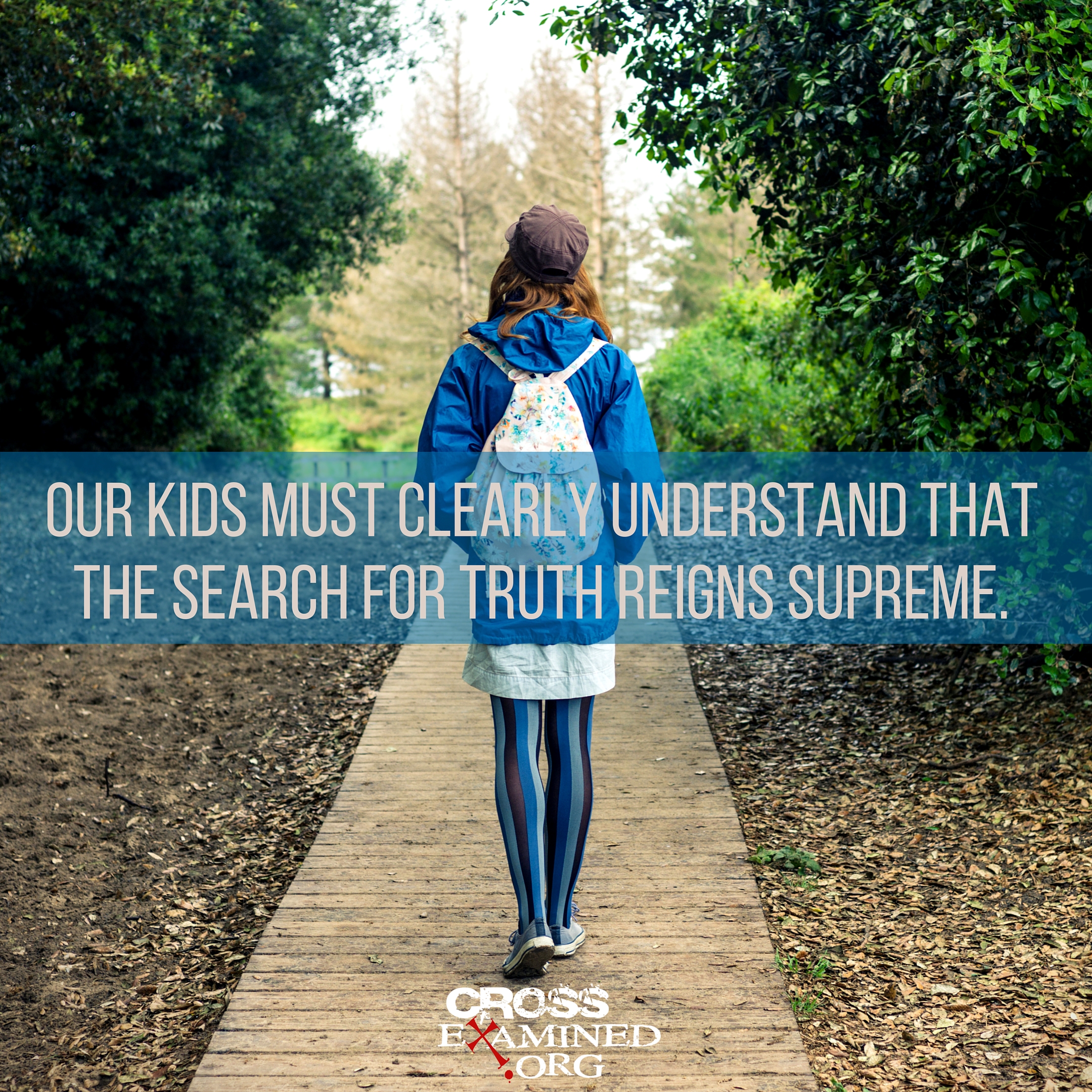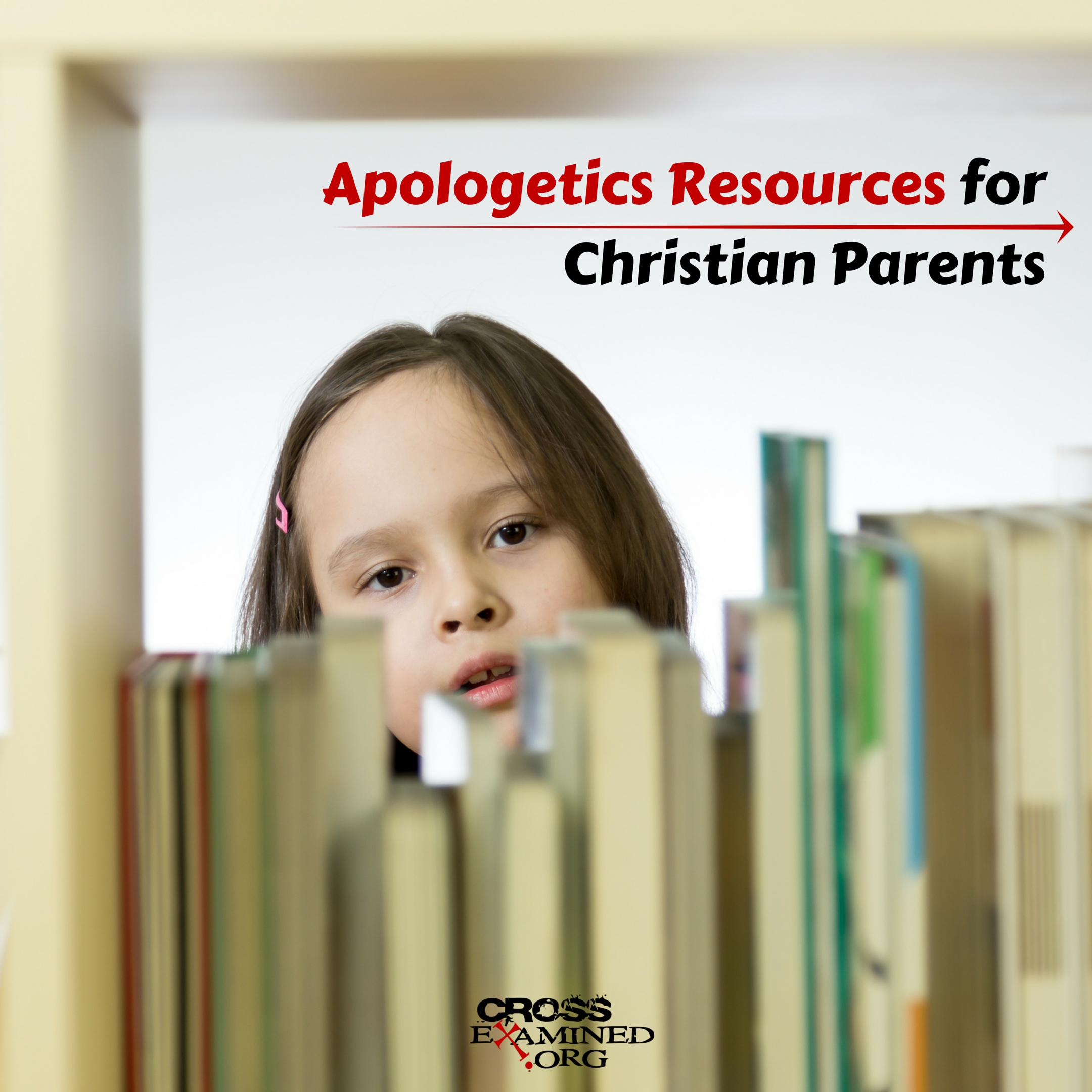The most popular post on my blog is one I wrote last year called, The Number One Sign Your Kids are Just Borrowing Your Faith (and Not Developing Their Own).
That post has been read by more than 80,000 people and shared almost 14,000 times. Clearly it resonated deeply with people.
So what was the sign that your kids are just “borrowing” your faith?
They rarely, if ever, ask questions about it.
Many parents wrote to me and said the post made them realize that they were doing a lot of talking about God…but their kids weren’t doing a lot of talking back.
If your kids aren’t showing much proactive interest in talking about faith, I have a very easy and effective solution to share with you today: Start a questions night.
For the last several months, our family has set aside a night each week in order to simply sit and answer any questions our kids have about faith. They absolutely love it. And I can tell you that they weren’t asking these questions before we started the questions night. They knew they could always ask us questions, but that doesn’t mean they actually did. Setting aside a special time for questions opens the doors of communication in ways that don’t necessarily happen otherwise.
These question nights have facilitated some of the most important conversations we have ever had with our kids.
Here are 9 tips to help you get started with your own!
1. You don’t need to know how to answer all your kids’ questions before you launch your questions night.
Whenever I mention to someone that we have a questions night, the first response is always, “I don’t think I could answer my kids’ questions!”…followed by an uncomfortable laugh. If that’s what you’re thinking as you read this, please don’t let that concern stop you from doing it! You will never know how to answer all of your kids’ questions. No matter how prepared you are, they will ask questions you’re not sure how to answer…so there’s no point in waiting.
2. When you don’t know an answer, there’s no need to be embarrassed…just use it as a chance to teach your kids how you find answers yourself.
I’ll never forget one of the first questions my daughter asked: Why did Jesus have to be baptized if He wasn’t a sinner?
I have to admit I had never thought about that (if you’re interested in the answer, here’s a nice quick article). I laughed and told her that was a really great question that I hadn’t even thought about. Then I showed her how we could use my study Bible to find an answer.
Here’s the thing to remember: When your kids stump you, they’re proud of themselves…not ashamed of you. Praise them for asking a great question, then use it as an opportunity to demonstrate how to find the answers together. My kids love thinking of questions so good we can’t answer. And we love it too.
3. Explicitly tell your kids that any question is OK.
If your kids are old enough that they may have doubts about their faith, they may not open up with those questions by default. Other kids might fear their questions are too basic and won’t want to admit they don’t understand something they feel they should. Be sure to explicitly tell your kids up front that all questions are welcome and you’ll never bedisappointed by or angry about something they want to know.
4. If you think your kids might need time to warm up to the idea of asking questions, have some ready to go in advance.
If you’re not sure that your kids will hit the ground running with the new questions night, pick a couple of interesting questions in advance to throw out on their behalf. That way you won’t be sitting around awkwardly staring at each other in silence. If you need some ideas, check out my list of 65 questions every Christian parent should learn how to answer.
5. If you have more than one child, “open the floor” to questions but make sure everyone has the chance to ask something.
When we first started doing this, we went around in a circle, having each of our kids ask a question on their turn. The good side of doing it that way is that it encourages everyone to be thinking. The bad side is (1) that it can kill the momentum of the night if one kid is not feeling particularly thoughtful (everyone will be sitting around waiting for them to come up with something), and (2) that if your kids are competitive (as mine are), they’ll spend more time thinking up a good question for their impending turn than listening to the current discussion. We found the whole night flows better when you simply let everyone throw out questions as they have them. Just make sure that if someone didn’t ask something on their own, you give them the chance to.
6. Don’t assume young kids don’t have big questions to ask.
For a while, it was only my twins (age 6) asking questions. My 4-year-old rolled around on the floor, seemingly bored by the more “advanced” conversation going on around her. When I asked her each time if she had a question, she gave me an embarrassed look and said, “Nooo!” She was intimidated by the questions from her older siblings.
But one night she finally spoke up and said she had a question.
“Mommy, why did God create soldiers who kill people?”
I was more than surprised that this was a question on my 4-year-old’s mind (I still don’t know where it came from).
If you have young kids, don’t assume they don’t have big questions. Kids as young as 3 or 4 can benefit from doing this! It might take time for them to speak up, but you just might be surprised how much they’re already thinking.
7. When your kids ask a question that the Bible doesn’t clearly answer, be honest about that and use it as a key teaching opportunity.
Quite often, I find myself answering a question with “the Bible doesn’t tell us for sure” or “the Bible doesn’t give us all of the details on that.” For example, my kids often ask questions about heaven—what it will be like, what we’ll be doing, etc. I tell them that the Bible doesn’t give us all the details, and that there are many things like that.
But I don’t like to leave it there. I think it’s an important time to teach them about the three points I described in my post, How to Handle Questions God Didn’t Answer: God’s revelation is not broken, we can trust that God has revealed all we need to know, and it should be our life’s work to understand the answers He has given us.
8. When your kids ask a question that’s been a struggle for you personally, tell them as much.
This might sound counter-intuitive, but I actually love when the kids ask something that’s a difficulty in my own faith. As for many people, the problem of suffering in the world has always greatly troubled me. When the kids ask questions on this subject, we discuss free will and its implications, but I’m quick to tell them that this has always been hard for me (and many others) to understand. I explain to them that it’s easy to look at those things and see them as evidence against God. I’m very honest about it. But after I acknowledge that, I use it as a perfect opportunity to talk about how much evidence there is for God and why we are Christians despite those difficulties.
Getting real about your own faith challenges gives you credibility with your kids and helps give them a more realistic understanding of what a living, breathing faith looks like.
9. If you miss a week…or two…or three…don’t give up on it.
There was a period of about a month when we got busy and didn’t do our questions night. It would have been easy to let it go at that point. But when we told the kids one evening that it was time to do it again, they cheered and all ran into the living room to sit down. They started waving their hands in the air to be the first to ask something. And we literally couldn’t stop the questions from coming.
After just one month.
Again, they could have asked us those questions at any time. They didn’t need a “questions night.” But in the hustle and bustle of life, those questions often don’t naturally arise. So give it a try in your own family. It could completely transform your kids’ spiritual life.
Here’s a challenge to all of you as an easy start toward this. Ask your kids today, “What is one of the biggest questions you have about God, Jesus, or the Bible?” Come back and share what they asked and what happened in your conversation!
For more articles like: How to Get Your Kids to Ask More Questions About Their Faith visit Natasha’s site at ChristianMomThoughts.com






